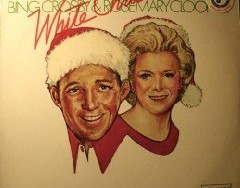Tag: Rosemary Clooney

Billie Holiday
4.7.15 The legendary vocalist Billie Holiday was born 100 years ago today. Though a household name nowadays, she struggled to achieve the same notoriety as singers like Louis Armstrong and Ella Fitzgerald. Strongly influenced by Armstrong and Bessie Smith, her Read More …
“Snow” Fight!
. vs. In honor of December, and HPZ’s annual “White Christmas Pre-Christmas Countdown to Christmas,” I present a head-to-head match-up Read More …
The Cole Porter Story
. For years, a copy of The Cole Porter Story, as told to Richard G. Hubler, has been tucked away on the bookshelf of the headboard of my grandma’s guest bed upstairs. It appears to be stolen from a library, Read More …
They came a long way from St. Louis
Fans of the Heavy Petting Zoo know that I have a special place in my heart for Rosemary Clooney. My friends know this too (how could they not?), and upon a recent stop in Chicago, two good friends surprised me Read More …

“White Christmas/A Christmas Special” – Bing Crosby and Rosemary Clooney
Fact: Christmas is not Christmas without Bing Crosby. I got this hard-to-find LP from a friend and former WSUMer who discovered it at a resale shop either here in Madison or down in Chicago. Side A features Bing Crosby, and Read More …